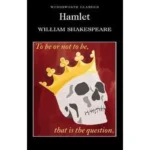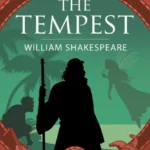Μήνας: Δεκέμβριος 2024
Let’s learn the farm animals
Have you ever seen a farm and the animals that live there? Follow the link below to discover some of them:
Now listen to the song. Can you remember all the animals Old MacDonald had on his farm?
Now you can practise by playing some games. In the first game you listen to the sounds of some farm animals as you help the lady farmer find them! In the second one you match the picture of the animal to the word you hear by clicking in the correct spot. Good luck!
Fun Christmas Games For Kids (of all ages)!
The Holiday Season is a time for joy, peace, and treasuring time with your family and friends – but it is, also, the perfect time for kids to learn through play with some fun Christmas games. Educational games are an ideal way to help children (of all ages) build and practise skills while having so much fun, they won’t realise they’re learning! Here are some fun Christmas game ideas to enjoy with kids:
- Snowball Fight (with Words): You can write some Christmas-related words on paper “snowballs” and then get the kids toss them around for a minute. When time’s up, they grab one, read the word aloud, and use it in a sentence.
- Pin the Nose on Rudolph: A holiday twist on the classic “Pin the Tail on the Donkey.” Blindfold the kids and have them try to pin a red nose on a picture of Rudolph. Add an English twist by asking a holiday question before their turn.
- Pass the Present (with Questions): Wrap a small gift in multiple layers of paper. Between each layer, include a simple English question or task (e.g., “Name 3 Christmas songs” or “Spell ‘stocking’”). Kids unwrap a layer and complete the task before passing it on.
- Christmas Scavenger Hunt: Create a list of Christmas-themed items for kids to find around the house or yard, if the weather conditions allow it. Include things like a candy cane, a red ornament, a Santa hat, etc.
- Holiday Pictionary: Write Christmas-related words or phrases on cards (e.g., “Santa’s sleigh,” “snowman,” “Christmas tree”). Let the kids take turns drawing the word while others guess. This is a great game for building vocabulary and demonstrating creativity!
- Christmas Charades: This game is similar to Holiday Pictionary, but it is acted out instead of drawn. Use words and phrases like “wrapping gifts,” “decorating the tree,” or “singing carols.”. It is a great activity that encourages speaking and imaginative play.
- Christmas Carol Karaoke: Have a karaoke session with popular Christmas carols. Kids can sing along to their favorite holiday tunes and perform for the group.
- Christmas Bingo: Create bingo cards with Christmas-themed vocabulary (e.g., “stocking,” “star,” “elf”, “sleigh”, “reindeer”, etc). Call out words, and kids mark them on their cards. The first to get a line wins!
- Santa Says (Like Simon Says): Play a holiday version of “Simon Says,” where “Santa” instructs kids to perform actions (e.g., “Santa says jump like a reindeer,” “Santa says sing ‘Jingle Bells'”).
- Toilet Paper Snowman: Divide players into teams of two. When the host of the game yells “Go!”, one team member has to “build” a snowman by wrapping the other entirely in toilet paper, finishing off the “snowy” friend by sticking on snowman buttons and a nose as well as a scarf and hat. First one to finish wins!
British Schools (embedding task)
Watch the following video to find out about school life in Britain. Can you spot any differences between British and Greek schools?
Now that you have watched the video, do the following task:
The life and influence of Shakespeare
About his life
William Shakespeare was born on 23rd April, 1564, in Stratford-upon-Avon, England. He moved to London at around 1585 to begin his acting apprenticeship.
Between 1593 and 1601 Shakespeare composed his famous sonnets. His poetic work examines the passage of time and the failure of language to immortalize beauty and love. Here is some more information about the Shakespearean (or English) sonnet.
In 1594 Shakespeare joined one of the most well-known troupes of London, the Lord Chamberlaine’s Men. By 1599, the troupe had enough money to build the Globe Theatre. Globe became the playhouse where audiences first saw some of Shakespeare’s best known plays.

Shakespeare wrote Tragedies, Comedies and Histories. The common elements in Shakespearean comedies are: happy ending, love triangles, misidentifications, miscommunications, and clever servants. The common elements in Shakespeare’s tragedies are: tragic events, betrayal and death. The protagonist’s demise is caused by a fatal defect in their character. The common elements in Shakespearean histories are: political disputes, power struggles, and power dynamics.
About his Influence
Shakespeare’s Macbeth, Hamlet and King Lear are ranked best among the world’s greatest plays. Hamlet is the most adapted play, at least for the cinema industry, with 79 versions in circulation. The movie The Lion King (1994), loosely based on Hamlet, is the most popular and successful adaptation of Shakespeare’s plays. Over his career Shakespeare invented thousands of words. He would combine or contort French, Latin and other roots to create new words and coin new expressions (neologisms). His opening line from a monologue in “As You Like It” is one of the most influential quotes of all time: “All the world ‘s a stage and all the men and women merely players“.
Ο αγώνας της Scarlett
Σε λίγες μέρες καλούμαστε να τιμήσουμε στα σχολεία μας την Παγκόσμια Ημέρα Ατόμων με αναπηρία. Η ημέρα αυτή καθιερώθηκε το 1992 με απόφαση της Γενικής Συνέλευσης του ΟΗΕ και τιμάται κάθε χρόνο στις 3 Δεκεμβρίου. Είναι μια μέρα που υπενθυμίζει σε εμάς τους εκπαιδευτικούς την ευθύνη που έχουμε για τη διασφάλιση της ισότιμης πρόσβασης όλων των μαθητών στην εκπαίδευση, χωρίς διακρίσεις και εξαιρέσεις. Είναι μέρα που όλα τα σχολεία της χώρας ενώνουμε τη φωνή μας για να στείλουμε ένα μήνυμα αποδοχής, αλληλεγγύης και αλληλοσεβασμού. Η προβολή μιας μικρού μήκους ταινίας κινουμένων σχεδίων (animated short film) αποτελεί μια πολύ καλή επιλογή για τον εκπαιδευτικό ως αφετηρία συζητήσεων, προβληματισμού και εκπόνησης δημιουργικών δραστηριοτήτων από πλευράς μαθητών. Η ταινία κινουμένων σχεδίων Scarlett είναι σύντομη και μπορεί να επιλεγεί από τον εκπαιδευτικό, γιατί διαθέτει ποιοτικά χαρακτηριστικά που μπορούν να αξιοποιηθούν στο πλαίσιο ποικίλων μαθησιακών δραστηριοτήτων, ανάλογα με την ηλικία και το επίπεδο των μαθητών.
Η ταινία αφηγείται την ιστορία ενός νεαρού κοριτσιού, της Σκάρλετ και της πάλης της με τον ακρωτηριασμό, μετά τη μάχη της με μια σπάνια μορφή καρκίνου των οστών, το σάρκωμα Ewing. Στην ταινία, βλέπουμε πώς η ασθένεια επηρεάζει τη Σκάρλετ συναισθηματικά και σωματικά, προτού ανακαλύψει, με τη βοήθεια της μητέρας της, ότι θα μπορέσει να συνεχίσει να κάνει όλα όσα ήθελε να κάνει. Ο εκπαιδευτικός μπορεί να αξιοποιήσει το στοιχείο της αφύπνισης της ενσυναίσθησης και της συναισθηματικής ταύτισης των μαθητών με την ηρωίδα της ταινίας προκειμένου να αντλήσει ιδέες για ποικίλα διδακτικά σενάρια: δημιουργία ζωγραφικής σύνθεσης, καταχώρηση ημερολογίου (diary entry) όπου ο μαθητής / μαθήτρια θα αναλάβει το ρόλο της Σκάρλετ, συγγραφή επιστολών προς την ηρωίδα από τα παιδιά της τάξης, δημιουργία ποιητικών συνθέσεων ή εμπνευσμένων αποφθεγμάτων (inspirational quotes), κλπ.
Όπως το απόφθεγμα του αιδεσιμώτατου Desmond Tutu με τον ορισμό του τι είναι Ελπίδα: “Hope is being able to see that there is light despite all of the darkness“. Φως (light) με αποχρώσεις άλικου (scarlet red), όπως αρμόζει στην περίπτωση της Scarlett!










